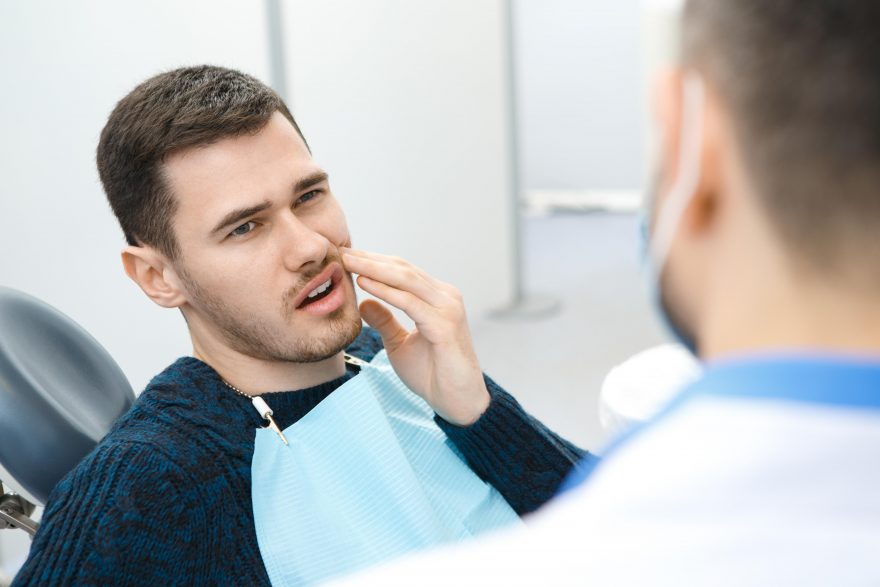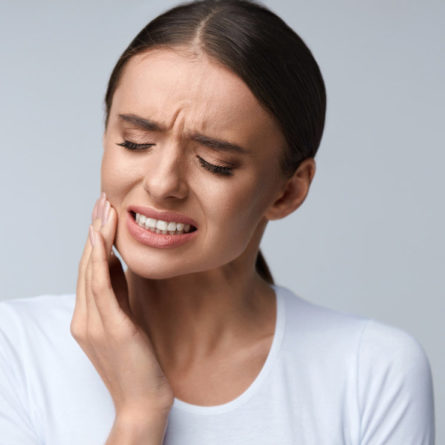Occasional Jaw Pain
Many of the common signs of heart attack are well known: tightness or pressure in the chest, discomfort in the arms and shoulders, shortness of breath. There’s another to add to the mix, one that may not prompt an immediate 911 call or trip to the ER: jaw pain.

The pain is often described as a variable deep ache with intermittent sharp pain with jaw movement. Click, pop, and snap: These sounds usually are associated with pain in the jaw joint. The click with pain occurs as the disc of the jaw joint moves forward. Pain in epigastric region, pain in the back between shoulder blades, dizziness, lightheadedness, blurred vision, jaw pain, all intermittent for months? Louis Gallia answered 45 years experience Oral and Maxillofacial Surgery. If the sinus cavities behind your cheeks, known as the maxillary sinuses, are inflamed, you might feel pain in one or both sides of your jaw. Other symptoms of sinusitis include: nasal congestion. Broken jaw: Injuries could cause a fracture or dislocation of the lower jaw, thus causing swelling and pain. Joint pain: If the child has joint problems, such as juvenile arthritis, then the pain could occur in various joints of the body, including the jaw (8).
“Sometimes the manifestation of a heart attack or some cardiac event can be felt in the jaws, the teeth and the neck. It’s not just the left side; it can happen on the right side, too, especially for females,” says Dr. Steven Bender, clinical assistant professor and director of the Center for Facial Pain and Sleep Medicine at Texas A&M College of Dentistry. “The pain is a sign. It’s an indicator that something is happening right then, right in that moment. It may come and go depending on the severity, just like people who say ‘I thought it was heartburn,’ and it comes and goes. It’s the same thing with the jaw pain. It may come and go, and people may not attribute it to a cardiac event.”
TMJ pain may be a dull, ongoing irritation or a sharp, searing pain. This discomfort may be more apparent when you move your jaw to talk, chew, swallow, or yawn. In addition to experiencing.
The head, neck and jaw pain experienced during a cardiac event is different than the chronic pain experienced by many of Bender’s patients, who often suffer from temporomandibular joint disorders. Patients with TMD typically can put their finger on the exact area that hurts, whether it’s the jaw, the jaw joint or the side of the head, and the pain often flares up when yawning or chewing.
“If it’s a cardiac event, they won’t notice those factors. It’s going to be more of a diffuse pain, and it will be hard to identify the exact location,” Bender says. The pain can get so intense that it wakes people from sleep. While TMD doesn’t often have this effect, a toothache can. So what’s another way to discern when you have a potential emergency on your hands? Assessing jaw pain in combination with other symptoms.
“They are going to feel flushing or experience perspiration, and they’ll notice that walking up a flight of stairs or physical activity may make it worse,” Bender explains. “They may feel more of a pulsating pain as compared to a deep ache.” And then there’s dizziness, confusion — some of the typical signs of a cardiac event.
Dr. George Feghali, general and interventional cardiologist at the Baylor Jack and Jane Hamilton Heart and Vascular Hospital, takes it one step further. It’s not just about jaw pain combined with other symptoms, but jaw pain coupled with risk.
“I never encounter a patient who comes to see me who says, ‘I’m having jaw pain,’ without any other symptoms. They should have risk factors,” Feghali explains. “For instance, if I have a young lady come to see me without any other risk factors — diabetes, hypertension, smoking, family risk factors — this is less likely to be the heart. If I have someone who is a big smoker, diabetic, who comes to see me because every time he walks around he gets chest pain and jaw pain, ruling out heart disease is an important step.” In such situations, cardiologists have stress tests and other diagnostic tools at their disposal.
/jawpainfinal-01-5c05db6946e0fb00013feb39.png)
“You always have to put it into context with risk factors,” Feghali adds.
Just like with every clinic at the dental school, appointments at the pain and sleep center involve taking a patient’s blood pressure. When the monitor indicates arrhythmia — an irregular heartbeat — or when patients describe palpitations, Bender refers them to a cardiologist.
Aside from referrals, Feghali describes dentists’ most direct role with patient cardiac health: “Prior to vascular surgeries or other surgeries that involve putting foreign bodies in the heart, you need to make sure the teeth are completely taken care of.” On the other end of the spectrum, it’s also quite common for dentists who work with his patients to seek his opinion on whether certain antibiotics may be necessary prior to dental work.
It’s a two-way collaboration, he explains.

“Taking care of the patient as a whole, that would include working with a dentist and a dentist working with the cardiologist, and working with a lot of other specialties to make sure the patient is doing well.”
Do you suffer from jaw, facial or headache type pain?
Temporomandibular disorder (TMD), or temporomandibular joint (TMJ) syndrome, is the most common cause of pain in the face. It often occurs after a tooth ache and never goes away.
Two TMD Syndromes
Muscle-related TMD is most common. In its pure form, it lacks apparent destructive changes on x-ray and can be caused by multiple things, such as teeth grinding and daytime jaw clenching.

The cause of the symptoms (ie, pain, tenderness, and spasm of the chewing muscles) is muscular hyperactivity and dysfunction due to poor dental alignment of variable degree and duration. Psychological factors may also play a role.
Joint-related TMD is generally caused by disk displacement. Yes there is a disc in your jaw joint! Just like your back, your jaw joint can take a disc beating and develop a dysfunction.

In the face of TMD/TMJ you may have any of the following symptoms:
Occasional Jaw Pain
- Pain: Pain is usually around the joint, associated with chewing, and may radiate to your head. However, it is not like a headache. It may be on one side or both. The pain is often described as a variable deep ache with intermittent sharp pain with jaw movement.
- Click, pop, and snap: These sounds usually are associated with pain in the jaw joint. The click with pain occurs as the disc of the jaw joint moves forward. An isolated click is very common and is not a risk factor for development of long term jaw joint dysfunction.
- Limited jaw opening and locking episodes: The lock can occur either open or closed. Open lock is an inability to close the mouth and is seen when the mandible dislocates forward. Closed lock is an inability to open the mouth because of pain or disk displacement disabling opening of the jaw.
- Headaches: The pain of TMD is not like a usual headache. The TMD may act as a trigger in individuals prone to headaches. TMD involving muscle pain predisposes to migraines and chronic daily headaches, and the more painful the TMD, the more likely it is to be associated with headache. Some people may have a history of headaches resistant to treatment; therefore, the TMD trigger should not be overlooked when headaches occur! Who would think about their jaw as a cause of headaches?
How to Relieve Jaw Pain
Most TMDs don’t last, and do not get worse. Simple treatment, involving self-care practices (stop grinding teeth), rehabilitation aimed at eliminating muscle spasms (magnesium, chewing strategies etc.), and restoring correct coordination, is all that is required.
NSAIDs (Advil, ibuprofen, Aleve etc.) should be used on a short-term, regular basis and not on an as-needed basis. Soft tissue techniques geared towards releasing the muscles of the jaw are also effective.
For pain relief you might also enjoy: Natural Alternatives to Ibuprofen and Aspirin
Occasional Pain In Eye
If the problem persists, see your healthcare provider for further aid and assistance before you wear the jaw joint out. You need it for your long-term health and the simple ability to chew and nourish your body.